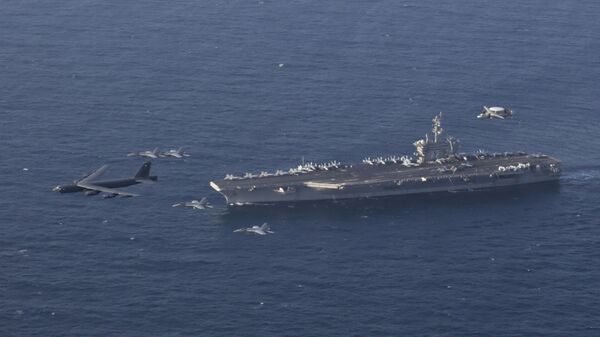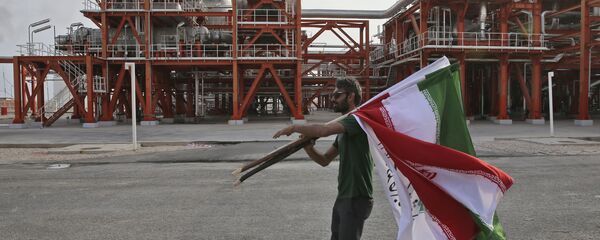Speaking aboard the USS Abraham Lincoln in the North Arabian Sea, Gen. Frank McKenzie, head of US Central Command, has said he may recommend boosting US forces in the Middle East to further act as a “stabilising” factor against Iran, writes The Wall Street Journal.
The commander justified this expansion upon concluding that the deployment of this aircraft carrier and other forces had already proved instrumental in warding off allegedly imminent Iranian threats to US assets.
On a brief tour of the region this week, the general claimed the enhanced US force in the region has, for now, stabilised the situation, but insisted Tehran posed a very real danger, and according to him, an attack could be imminent. Lauding the augmented US force in the area, he said: “We think this is having a very good stabilising effect.”
However, according to Gen. McKenzie, in order to be a long-term, credible deterrence force in the region, the US presence needs to be further enhanced.
READ MORE: Iran Calls US 'Maximum Pressure' Approach 'Defeated' Policy as New Sanctions Introduced
Referring to the fact that such a move would dramatically reverse US global military policy, since US President Donald Trump had initially been keen to disengage from conflicts in the Middle East, Gen. McKenzie claimed the threat posed by Iran may merit adjustments.
“We’re in the process of negotiating that,” Gen. McKenzie said, acknowledging the potential costs of a shift.
“I think very carefully and long and hard before I talk about bringing additional resources into the theatre. We are talking about it, but it’s going to be based on a running estimate of the situation as we go forward.”
As Gen. McKenzie spoke with the more than 6,000 sailors on the USS Abraham Lincoln he said:
“I am the reason you are here tonight.”
“I requested this ship because of ongoing tensions with Iran, and nothing says you’re interested in somebody than 90,000 tonnes of aircraft carrier and everything that comes with it.”
“My intent by bringing you in here was to stabilise the situation, let Iran know that now is not the time to do something goofy.”
Gen. McKenzie has not yet specified the additional military resources he might seek for the regional deployment.
Any recommendation would be made through acting Secretary of Defense Pat Shanahan and in coordination with Gen. Joe Dunford, chairman of the Joint Chiefs of Staff, said the commander.
The US has been headed on a collision course with Iran ever since President Donald Trump walked away from a multilateral 2015 nuclear deal in May 2018, with Washington reinstating all sanctions against the Islamic Republic, then designating its elite military force, the Islamic Revolutionary Guard Corps, a foreign terrorist organisation, with a stated goal of bringing Iran’s oil exports to zero.
Tehran has consistently claimed its military moves in the region have been defensive in nature, accusing the Trump administration of seeking a pretext for war and denouncing the US deployments.
Iran’s Foreign Minister Mohammad Javad Zarif also told the Islamic Republic News Agency (IRNA) that the move to send US troops to the Middle East was “extremely dangerous and it threatens international peace and security”.





